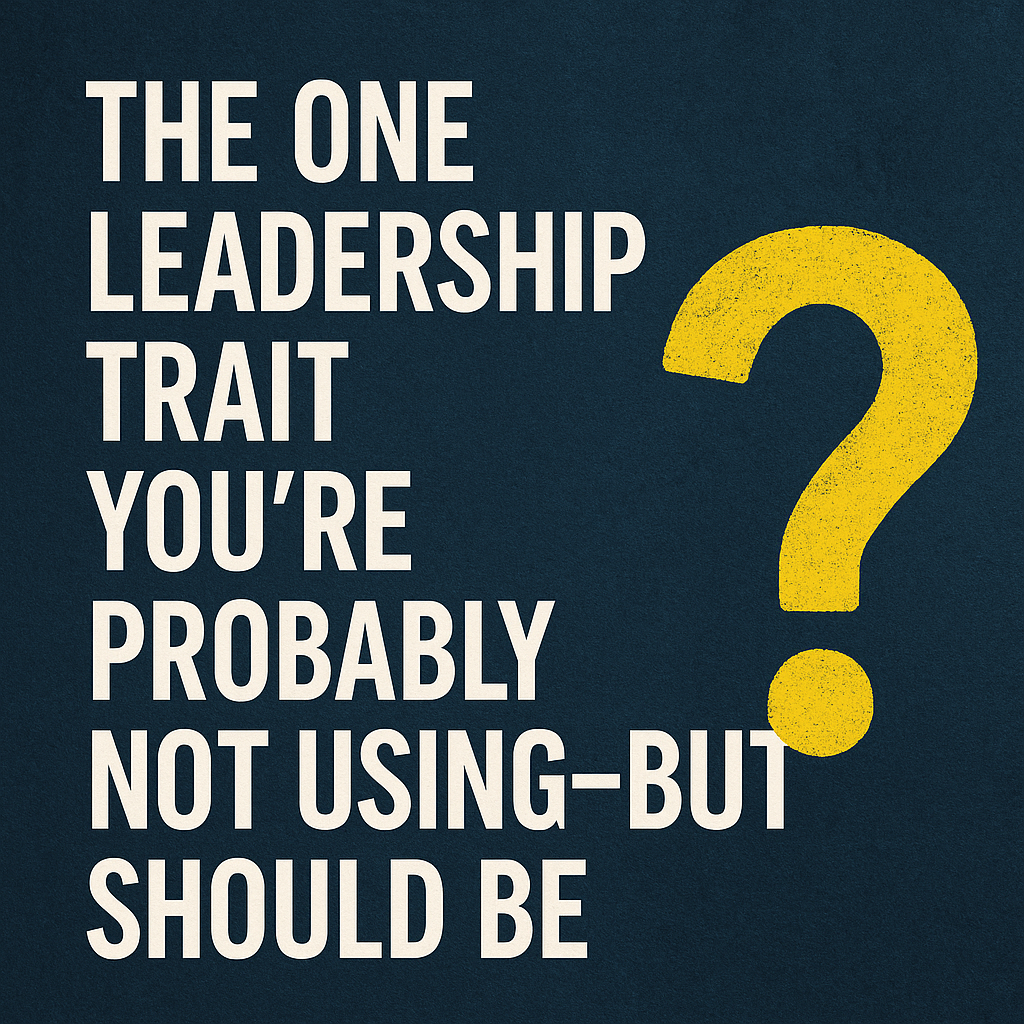
Most leaders aren't curious.
Let's say it plainly, because we've all seen it: leaders who default to telling, fixing, controlling, or judging—far more often than they default to asking.
Why?
Because curiosity is slow, it's uncertain. It doesn't give you that satisfying feeling of control or the rush of authority. Curiosity feels like a detour when you're paid to make decisions and drive outcomes. And let's be honest—many leaders think that if they ask too many questions, it will make them look weak or unprepared.
So they trade inquiry for assumption, curiosity for confidence. And in doing so, they lose the very thing that makes leadership effective: understanding.
The Real Cost of Not Being Curious
Let's start with the risk of skipping curiosity. When leaders don't ask, don't probe, don't explore the "why" behind what's happening, they often:
Here's a simple truth: people know when you're not curious. They can feel when you've already made up your mind, when you're not actually interested in their perspective, when your questions are loaded and your answers are ready.
It stings. And it shuts people down.
As Liz Wiseman wrote in Multipliers, "When leaders become the smartest person in the room, they inadvertently shut down the intelligence of others." Curiosity is the antidote to that impulse.
Why Leaders Resist Curiosity
There are five reasons most leaders don't lead with curiosity:
Curiosity: The Leadership Superpower
But the best leaders? The ones who build real loyalty, uncover the real problems, and develop people instead of draining them?
They lead with curiosity.
Here's why it works—and why it pays off:
1. Curiosity builds trust
When you ask someone what they think and actually listen, it sends a powerful signal: "I value your mind." That's fuel for psychological safety. And trust multiplies when people feel heard.
As Stephen Covey said, "Seek first to understand, then to be understood."
2. Curiosity boosts problem-solving
When leaders ask great questions—"What's the real root of this issue?" or "How would you approach it differently?"—they get better solutions. Not because they're smarter, but because they're pulling insight from more brains.
Good ideas often sound stupid at first. A curious leader doesn't kill them prematurely.
3. Curiosity multiplies engagement
People want to contribute to something bigger. If they feel like a cog, they check out. But if their opinions, experiences, and creativity are genuinely welcomed, they lean in.
Employees who are listened to work harder. Simple as that.
4. Curiosity accelerates learning
In today's environment, where change is constant and complexity is high, the leaders who thrive aren't the ones with all the answers—they're the ones who can learn the fastest.
And you can't learn without asking. You can't grow without admitting you don't know. Curiosity fuels adaptability.
5. Curiosity prevents blind spots
No leader can see the whole picture alone. The ones who think they can are dangerous. Curiosity surfaces contradictions, divergent perspectives, and inconvenient truths—exactly the things leaders need to make better decisions.
What Does Curiosity Look Like in Practice?
This isn't about turning every meeting into a therapy session. It's about developing a bias for exploration over assumption. Some of the most powerful, curious questions a leader can ask include:
And when you ask, shut up and listen. No interrupting. No jumping in with solutions. Just hold the space and let the answers breathe.
What Happens When You Don't?
When leaders lack curiosity, they often overestimate alignment and underestimate risk. They assume their team is fine when it's not. They think everyone's bought in when people are actually checked out. They chase surface-level symptoms and ignore the root causes.
They build compliance, but not commitment.
They confuse silence with agreement.
And one day, they find out the hard way that no one told them the truth, because they never created a space for it.
The Challenge: Curiosity as Default, Not Exception
The best leaders don't save curiosity for annual reviews or innovation workshops. They make it their default mode of operation. They train themselves to pause, to wonder, to probe, to question—especially when the stakes are high or their assumptions feel most certain.
Because curiosity doesn't signal weakness, it signals wisdom.
It's not a detour. It's the path to better thinking, stronger teams, and smarter leadership.
Final Thought:
If you're a leader and you find yourself talking more than listening, answering more than asking, and assuming more than exploring, pause. Ask yourself:
What am I missing?
You might be surprised at what opens up.
Because leadership isn't always about being right, it's about being wise enough to know when you might be wrong—and curious enough to find out.